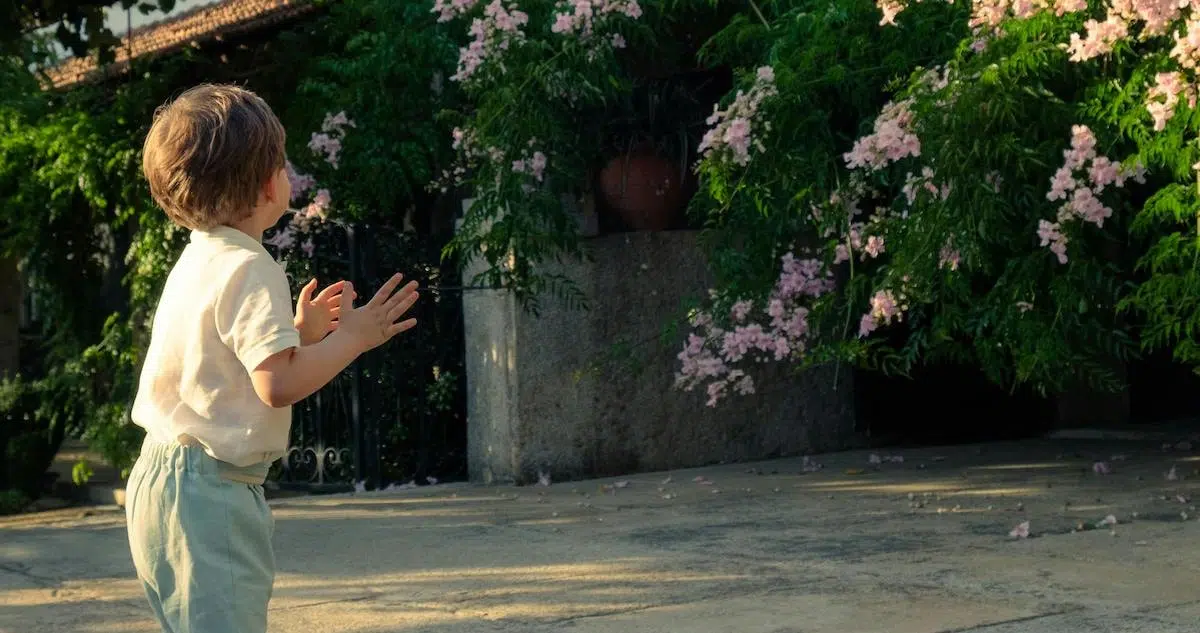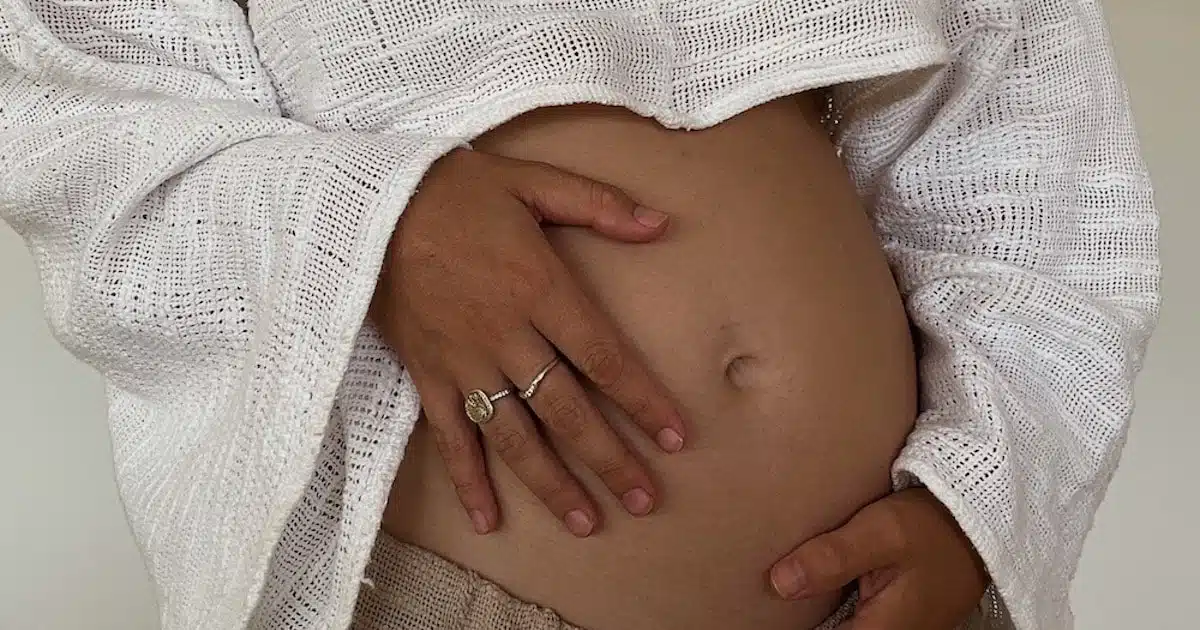Early signs of autism in toddlers: What to watch for
Natalie Ehrlich
Natalie Ehrlich
Up next
As an autistic mum of a child with autism, I am often asked by other parents, “Do you think my child is on the spectrum?” Typically, parents asking this question may already have some concerns or inklings about their child.
First up, let’s define autism spectrum disorder. According to the World Health Organisation, “Autism spectrum disorders (ASD) are a diverse group of conditions. They are characterized by some degree of difficulty with social interaction and communication. Other characteristics are atypical patterns of activities and behaviours, such as difficulty with transition from one activity to another, a focus on details and unusual reactions to sensations.”
The struggle with determining whether your toddler may be autistic/neurodivergent is two-fold: first, many early signs of autism appear in typical toddler behaviours and two, we now know that autism presents in a much broader spectrum of ways than previously understood. While there are general signs to look out for, it’s important that you seek a professional opinion with an autism-affirming provider if you feel your child’s development may need additional support. Many providers view autism as a problem to be solved. Autism in itself is not an illness or disease. Finding a provider who views neurodiversity in a positive light will help you identify and learn about your child’s potentially autistic brain in a more expansive and healthy way. You want to support your child’s development in any way possible, not just ruminating on their developmental differences.
Signs of autism in babies may show up the same, but it’ll be difficult to get an autism assessment until they’re a tad older.
Diagnosing autism
The autism community has spoken out more and more about why diagnosis is important to autistic individuals. Being autistic is not in itself a problem to be solved. However, autistic people move through and experience the world differently. If your toddler is exhibiting early signs of autism, seeking a professional’s help is important to gain a better understanding of your child’s specific nervous system and needs. From there, you can determine what support would be helpful for your child’s particular presentation of autism.
Autism signs don’t always present in the exact same way which makes it challenging to determine whether your particular child is autistic. Especially in toddlerhood where social skills, language, and behaviour are constantly shifting with development and often appear “atypical.”
Autism also presents much differently in males than females. Typical autism evaluations are based upon old criteria that were developed by studying young males. Consequently, a lot of what we look for doesn’t apply to females on the spectrum. It’s important to keep this in mind if you suspect your female toddler is autistic, or is showing early signs of developmental differences.
Additionally, we now know that there is a different profile of autism called Pathological Demand Avoidance (PDA). This profile presents quite differently than other types of autism and is often missed as a result. It occurs equally as often in males and females.
Sign up
Get tailored content based on your week of pregnancy
By signing up, you agree to receiving our Newsletters. Cancel anytime.



Signs of autism in toddlers
As mentioned above, autism can present in a huge spectrum of ways and the signs can shift depending on the environment, how regulated your child is feeling, and whether their needs are being met. For instance, my autistic daughter often presents much more typically if she is well-rested and has had her sensory “cup” filled. If her needs aren’t met, she is more prone to meltdown and not being able to tolerate clothes and sounds. This is why we call it an autism spectrum.
The early signs are a moving target and may shift from one day to the next based on all of the environmental factors. If you have concerns, it’s helpful to keep a log so you can determine whether there are patterns around when certain behaviours ramp up. Same goes for signs of autism in babies – you might notice some early signs worth bringing up with a family health nurse or a health professional. This could help an early diagnosis and support your family even more.
Also, an important note: not all of these signs will be present in all toddlers. My daughter makes eye contact unless extremely dysregulated. She engages in social speech and imaginative play. She would never have been diagnosed if I was looking for her to tick all of the boxes on a generic autism checklist.
Early signs of autism in social skills
Let’s start with early signs of autism spectrum disorder in social skills. Social interactions can be overwhelming for autistic folks and especially, for autistic toddlers. It might mean that typical social developmental milestones aren’t met in the same way as other children. The amount of sensory input combined with social norms that may not make sense to an autistic toddler and young children can lead to behaviours like:
- Preferring to play alone and showing little interest in connecting with other children.
- Not making eye contact (although many autistic toddlers may make eye contact)
- Not as responsive to facial expressions by others. For example, doesn’t smile back when you smile at them.
- Limited engagement in imaginative play (unless the child is on the PDA part of the spectrum, in which case they may blur the lines between reality and imaginative play)
- Echolalia: repeating the words or sounds of those around them without understanding/ascribing meaning
- Limited speech or absence of it
- Not wanting to be touched in the case of a sensory avoiding profile
- Needing constant touch if sensory seeking
- Appears not to show empathy for others. For example, a child at the playground scrapes their knee and your child stares blankly.
- Uses the wrong pronouns to address themselves and others
- Not using words by around 15 months old
Early signs of coping with autism
There are certain behaviours that we associate with autism spectrum disorder and they are often framed as “red flags” or problematic. It’s important to reframe this and understand that these behaviours are adaptive ways that an autistic toddler is coping with nervous system disregulation. These behaviours are not an issue by themselves. They can be good clues into your child’s level of felt safety and can help guide you toward an autism assessment (and eventually, an autism diagnosis.)
These behaviours include:
- Stimming: this can show up as repetitive behaviours like rockling, flapping, wrist twisting, spinning. This is actually a really healthy way for an autistic toddler to work with their nervous system. Stimming should not be seen as a behaviour to be stopped.
- Hyper Focused interests: either with a toy, a show, a particular animal. Intense interest on one specific item, and little interest in others, is a key sign for early detection.
- Needing routines and being averse to change
- In the case of PDA, extremely adverse to routines and needing novelty to avoid nervous system activation triggered by everyday demands
- Sensory processing challenges: these show up as strong preferences for the same food, resistance to trying new foods, issues with clothes (often shoes and socks), adverse reactions to hygiene needs like baths, teeth brushing, hair brushing.
- Sensitivity to sound and noises that can lead to extreme distress or meltdowns
- Difficulties with sleeping
- Extended toilet training challenges
- Looks at objects from unique angles
- May not point at objects
- Losing language skills between 15 months and 24 months
Most autistic toddlers will not exhibit every single one of these signs. Often, autistic children are missed or don’t get a diagnosis until much later in life because society as a whole has determined that autism looks a certain way or presents only in extremes. A lot of these behaviours can also be attributed to Sensory Processing Disorder (SPD). Autism, SPD, ADD and ADHD all have some overlap in the way they present. If you feel your child is struggling, there are lots of resources and tools to help your child function and thrive with their uniquely wired brain.
It can be overwhelming at first, but having an autistic child does not mean your child is flawed, bad, or disordered. Developmental disorders, though challenging, don’t mean that anything is wrong with your little one. If you are seeing signs of autism in your toddler, they may have a unique nervous system and process the world in a different way. Finding professionals who view autism through this lens is vital in your journey toward understanding your toddler’s unique behaviours and how you can help them thrive in a neurotypical world. Celebrate the developmental milestones they do reach, and embrace every bit of them.
Related Articles
Helping children use eye contact
Clinical Psychologist Jaimie Bloch on detecting ASD in babies and toddlers
3 things you need to know about concentration in little ones…
Related Articles
Trending
Natalie Ehrlich
Follow +A lawyer turned professional writer, Natalie Ehrlich is a mother of three under five with a passion for supporting parents. With a history of editorial experience at major lifestyle and fashion brands, writing about parenting while in the thick of it feels like a career dream come true. In her “free” time, she enjoys reading one page of a book uninterrupted, cooking with...









